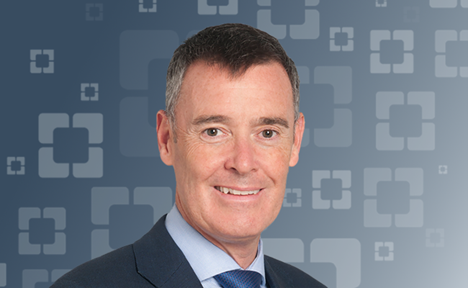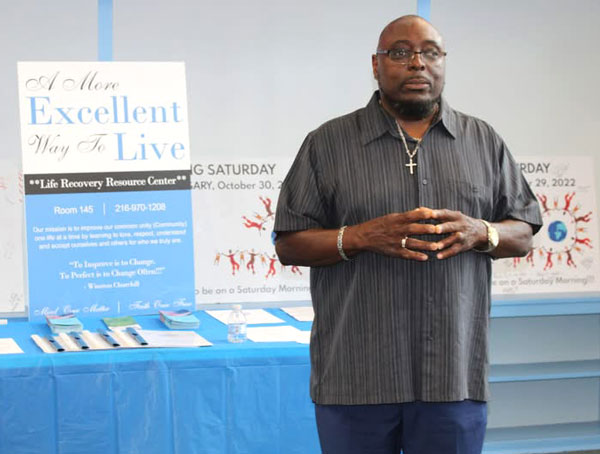Florida Leadership Update

July 2, 2025
Dear Friends,
Cancer impacts all of us in profound ways, whether through our loved ones, friends or perhaps even through your own personal journey. For me, it’s deeply personal — my dad passed away from cancer, and I’ve also had the privilege of caring for many patients who have faced this disease.
At Cleveland Clinic, we are deeply committed to advancing cancer research, innovation and care to make a direct, lasting impact on the lives of those affected by this disease.
One way Cleveland Clinic is working towards ending cancer is through VeloSano, our year-round fundraising movement that supports lifesaving cancer research. I have ridden in VeloSano in Ohio, and it is a truly amazing event. I am incredibly excited that we now have this in Florida.
Zeina Nehleh, MD, Cancer Center Director and Regional Vice Chief and Chair Hematology-Oncology at Cleveland Clinic in Florida, is among more than 20 physicians and scientists who have been awarded a VeloSano pilot grant. She has used these funds to research the potential of immersive virtual reality (VR) as a therapeutic tool for cancer patients.
VeloSano is now a global effort for all Cleveland Clinic locations to join forces toward a cure. VeloSano, Latin for “swift cure,” connects the cancer community with Cleveland Clinic’s expanding global impact in research, innovation and care. Since 2014, more than $80 million has been raised for this initiative — supporting more than 260 cancer research projects.
I’m proud to invite you to the second annual VeloSano Florida for the Cure on Saturday, September 27 at Markham Park in Sunrise, FL. This year, the event is expanding and will include both family-friendly and 35-mile bike loops in addition to a 5K walk/run.
For those unable to join us in person, virtual participation is available, allowing you to support this important cause anytime, anywhere.
I encourage you to help lead the charge in supporting VeloSano’s mission. Register today.
Together, we can continue to grow VeloSano in Florida and strengthen Cleveland Clinic’s global impact in cancer research and care.
Thank you for your support,
Conor P. Delaney, MD, PhD
President, Cleveland Clinic Florida Market
Executive Vice President, Cleveland Clinic
Why This Brain Study Participant is Excited

For Rod Reed, a 63-year-old resident of Mentor, Ohio, participating in Cleveland Clinic’s Brain Study feels like a calling. “There’s no greater joy than being of service to another human being,” he says.
In this case, it’s an untold number of human beings worldwide who one day will benefit from the contributions of Rod and other volunteer participants, as the study is poised to break new ground in the diagnosis and treatment of neurological disease.
Rod serves others locally in the here and now as well. He founded an addiction recovery program, A More Excellent Way to Live, where he works as a life coach and counselor. He wears other hats, too. As a retired truck driver, Rod now drives for Uber and Lyft. He’s a former drummer who worked professionally in bands for many years. And on the home front, he’s a husband, father and grandfather.
What drew Rod to enroll in the brain study? He’s intrigued by the dynamics of the brain as they relate to behavior and personality, and he’s excited by what science has yet to reveal. Rod hopes we can continue discovering ways to strengthen our brains to improve function. Offering his own brain for study felt like the natural thing to do.
Cleveland Clinic’s investigators are hoping to identify biomarkers in the brains and bodies of participants with the goal of detecting causes of neurological disorders before symptoms appear. Their long-term ambition is to develop better diagnostic tools, treatments and preventive measures for neurological diseases.
Rod appreciates that Cleveland Clinic’s researchers may eventually pioneer ways to improve the lives of people coping with neurological disease. He also recognizes the pragmatic takeaway of participating. “One of the benefits is that you a get a brain scan, and if something’s wrong, they’ll tell you,” Rod notes. “You’ll get to know in advance.” He understands the value of early intervention for any health concern.
Committed participants like Rod are essential to the project’s success. Christian Stephenson, a research coordinator for the study, explains, “Treatments and medications all result from research,” so participation in the research is crucial.
Rod has spread the word about the need for participants in the study. “I have talked to some people, but my friends have been apprehensive about it,” he says.
Christian is familiar with apprehension. He stresses that his team “goes above and beyond to meet the needs of participants,” many of whom have questions, especially those with a family history of neurological disease. Christian and his colleagues take time to help ease their anxiety.
For Rod, there is no hesitation. He is gratified—and enjoys a profound sense of peace—knowing his participation in the brain study will serve others. Rod muses about a future in which the treatment of neurological disease has been revolutionized, fascinated by “the idea that as I get older and even upon my death, I could still be helping people.”

